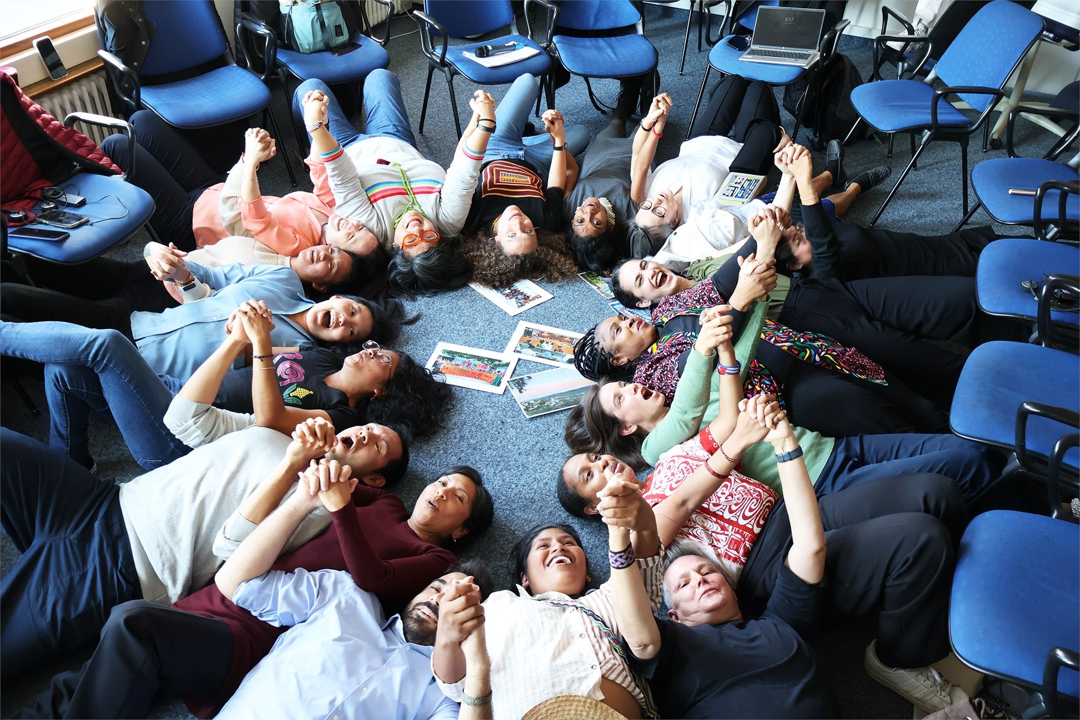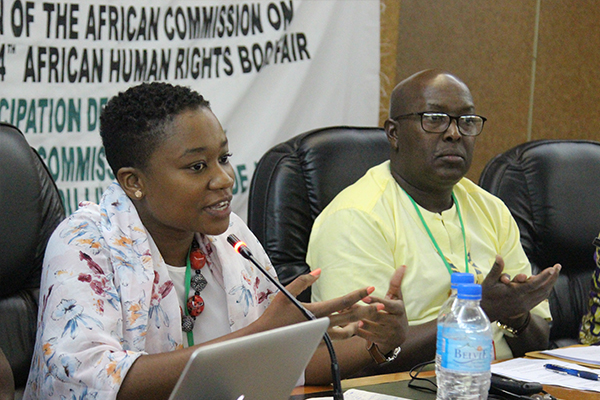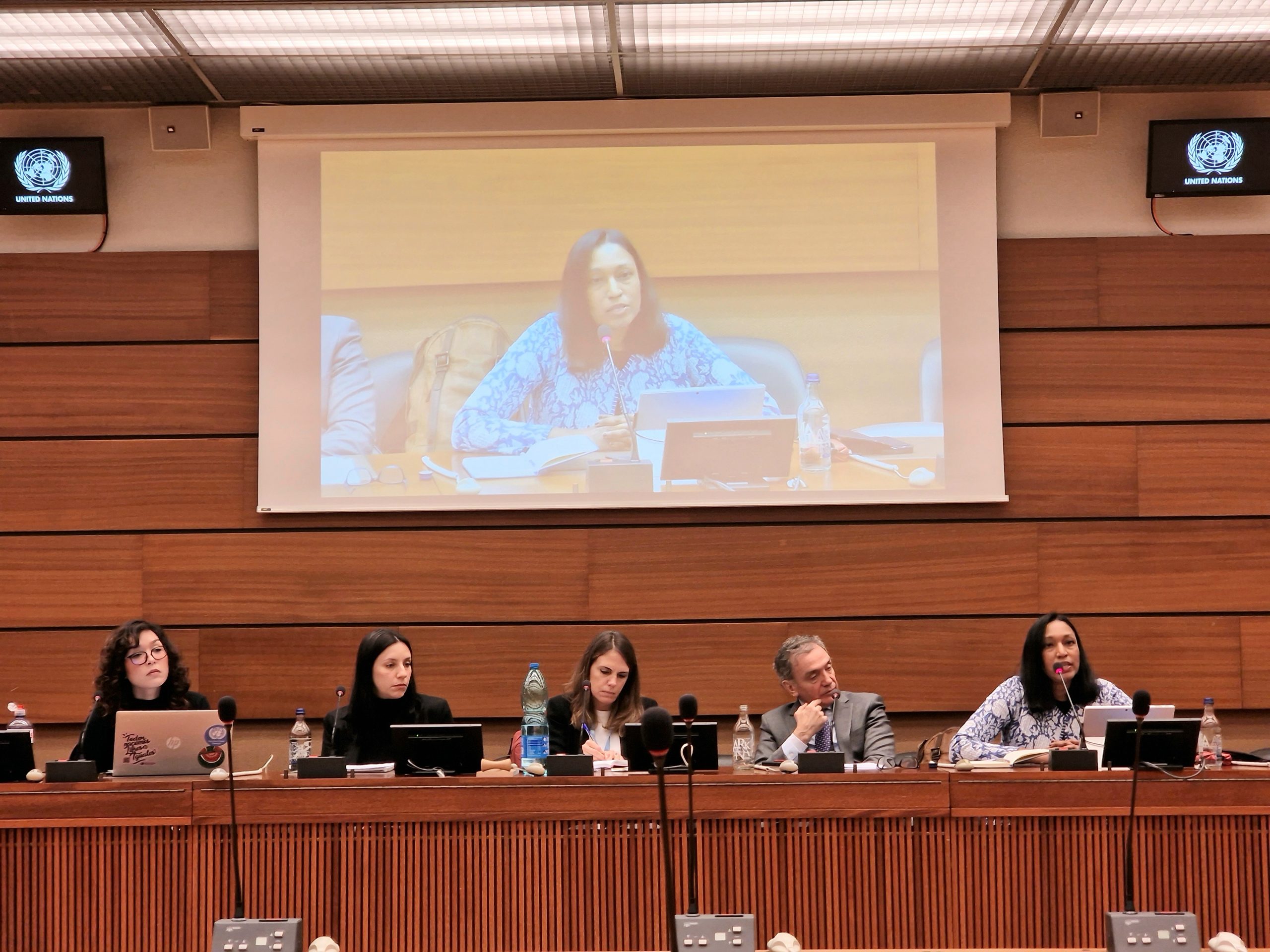The panel was composed of Reine Alapini-Gansou, the African Commission’s Special Rapporteur on human rights defenders; Rumbidzai Masango, ISHR’s Africa Human Rights Consultant; Arnold Tsunga, the International Commission of Jurists (ICJ) Regional Director for Africa and Onesmo Olengurumwa, national coordinator of the Tanzania Human Rights Defenders Coaliton. The panel was moderated by Hassan Shire, the Executive Director of DefendDefenders.
The panelists analysed the strategic role of human rights defenders (HRDs) in advancing the human rights agenda in Africa. They also deliberated on why some African States are reluctant to ensure, in law and practice, a safe and enabling environment for human rights defenders in general and women human rights defenders in particular. They concluded by sharing future prospects for HRDs in Africa by highlighting best practices and lessons learnt regarding opening civil society space.
‘My mandate is coming to an end but it has produced several measures to improve the protection of HRDs. These include:
• establishing networks of HRDs
• increasing the interaction between civil society organisations and the African Commission’s HRDs mandate
• and the production of studies such as the report of the study group on Freedom of Association and Assembly, Principles and Guidelines on Human and Peoples’ Rights while Countering Terrorism in Africa and the Report of the Study on the Situation of Women Human Rights Defenders in Africa,’
explained Commissioner Alapini-Gansou.
Arnold Tsunga expressed concern about the fact that, despite these policy developments and achievements at the African Commission level, protection measures are yet to be realised and implemented at the national level in most African countries.
‘It’s important to appreciate that defenders are working in an environment where there are weak and underfunded institutions of human rights protection. Oppressive and restrictive legal frameworks are on the rise and in many parts of Africa, democracy and good governance are in regress,’ said Arnold Tsunga. ‘Defenders are still at risk and civil society organisations should lobby for the national implementation of the African Commission’s guidelines and recommendations,’ he added.
‘In Tanzania, the government has enacted new laws in 2015 and 2016 such as the Media Services Act, the Access to Information Act and the Cyber Crimes Act,’ said Onesmo Olengurumwa. He explained that these laws have been used to threaten and harass media houses, journalists and HRDs focusing on the issues linked to the extractive industry, resulting in self-censorship and ultimately preventing freedom of expression and association in the country from becoming real.
Looking to the future of human rights in Africa, Rumbidzai Masango explained that there was an opportunity for CSOs and defenders to initiate the development of national protection laws for human rights defenders.
Participants from Morocco added that the future holded hope for defenders. They suggested stronger and longer term partnerships between civil society and relevant government departments to ensure a unified approach in protecting and promoting human rights defenders.
‘Defenders, along with national human rights institutions and Ministries of Human Rights/Justice, can use the legal framework to nationally implement the regional and international best practices that promote and protect HRDs,’ stressed Masango. ‘Despite the potential challenges, Côte d’Ivoire is a case in point that it can be done. Countries such as Niger, Burkina Faso, Mali and Sierra Leone are already drafting their laws,’ she added. Ending on an affirmative note, she encouraged panelists and participants ‘to be vigilant, submit shadow reports to the African Commission and monitor State compliance regarding the obligation to protect women HRDs during the State periodic review and reports.
Contact: Clément N. Voule, Director of African Advocacy, ISHR, on [email protected]
Photo: DefendDefenders




